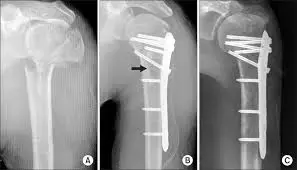- Home
- Medical news & Guidelines
- Anesthesiology
- Cardiology and CTVS
- Critical Care
- Dentistry
- Dermatology
- Diabetes and Endocrinology
- ENT
- Gastroenterology
- Medicine
- Nephrology
- Neurology
- Obstretics-Gynaecology
- Oncology
- Ophthalmology
- Orthopaedics
- Pediatrics-Neonatology
- Psychiatry
- Pulmonology
- Radiology
- Surgery
- Urology
- Laboratory Medicine
- Diet
- Nursing
- Paramedical
- Physiotherapy
- Health news
- Fact Check
- Bone Health Fact Check
- Brain Health Fact Check
- Cancer Related Fact Check
- Child Care Fact Check
- Dental and oral health fact check
- Diabetes and metabolic health fact check
- Diet and Nutrition Fact Check
- Eye and ENT Care Fact Check
- Fitness fact check
- Gut health fact check
- Heart health fact check
- Kidney health fact check
- Medical education fact check
- Men's health fact check
- Respiratory fact check
- Skin and hair care fact check
- Vaccine and Immunization fact check
- Women's health fact check
- AYUSH
- State News
- Andaman and Nicobar Islands
- Andhra Pradesh
- Arunachal Pradesh
- Assam
- Bihar
- Chandigarh
- Chattisgarh
- Dadra and Nagar Haveli
- Daman and Diu
- Delhi
- Goa
- Gujarat
- Haryana
- Himachal Pradesh
- Jammu & Kashmir
- Jharkhand
- Karnataka
- Kerala
- Ladakh
- Lakshadweep
- Madhya Pradesh
- Maharashtra
- Manipur
- Meghalaya
- Mizoram
- Nagaland
- Odisha
- Puducherry
- Punjab
- Rajasthan
- Sikkim
- Tamil Nadu
- Telangana
- Tripura
- Uttar Pradesh
- Uttrakhand
- West Bengal
- Medical Education
- Industry
Minimally invasive lateral shoulder approach safe and effective for proximal humeral fractures, suggests study

A study published in BMC Surgery suggests that a minimally invasive lateral shoulder approach is safe and effective for proximal humeral fractures.
A study was done to compare the clinical efficacy of the minimally invasive lateral shoulder approach and deltopectoral space approach in the treatment of proximal humerus fractures. The clinical data of 95 patients with proximal humerus fractures admitted to the hospital from June 2018 to June 2023 were retrospectively collected.
Forty-four patients were treated with a minimally invasive lateral shoulder approach (study group), and 51 patients were treated with a deltopectoral space approach (control group). The baseline data (age, sex, mechanism of injury, preoperative Neer classification, and time from injury to surgery), operation time, intraoperative blood loss, incision length, fracture healing time, and postoperative complications were compared between these two groups.
The VAS score, shoulder range of motion (ROM) score, and Constant-Murley score were used to evaluate the shoulder joint function of the two groups one year after surgery. Results: There were no significant differences in operation time, blood loss, incision length or fracture healing time between the two groups (P > 0.05). The incidence of postoperative complications in the study group was significantly lower than that in the control group, and the difference between the groups was statistically significant (P < 0.05). There was no significant difference in shoulder joint function or VAS score between the two groups one year after surgery (P > 0.05). The treatment of proximal humerus fractures via the lateral shoulder approach is minimally invasive and can reduce the occurrence of complications such as ischemic necrosis of the humerus head, relieve shoulder pain in the short term, and restore good shoulder function. Therefore, given the strict grasp of indications and familiarity with surgical operations, the minimally invasive lateral shoulder approach for the treatment of proximal humeral fractures is safe and effective and is worth promoting and applying in clinical practice.
Reference:
Ma, K., Wang, X., Pi, Z. et al. A comparative study of the minimally invasive lateral shoulder approach and deltopectoral space approach for the treatment of proximal humerus fractures. BMC Surg 25, 13 (2025). https://doi.org/10.1186/s12893-024-02690-y
Dr. Shravani Dali has completed her BDS from Pravara institute of medical sciences, loni. Following which she extensively worked in the healthcare sector for 2+ years. She has been actively involved in writing blogs in field of health and wellness. Currently she is pursuing her Masters of public health-health administration from Tata institute of social sciences. She can be contacted at editorial@medicaldialogues.in.
Dr Kamal Kant Kohli-MBBS, DTCD- a chest specialist with more than 30 years of practice and a flair for writing clinical articles, Dr Kamal Kant Kohli joined Medical Dialogues as a Chief Editor of Medical News. Besides writing articles, as an editor, he proofreads and verifies all the medical content published on Medical Dialogues including those coming from journals, studies,medical conferences,guidelines etc. Email: drkohli@medicaldialogues.in. Contact no. 011-43720751


